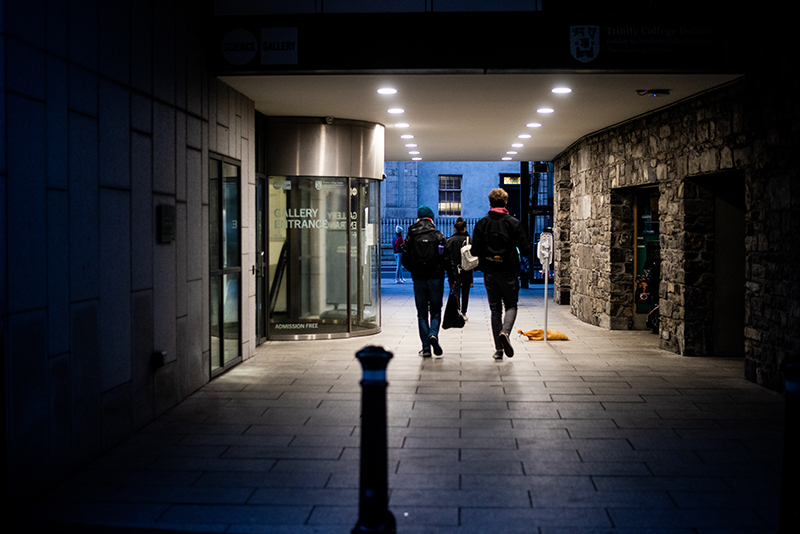Someone applying for a position as grandiose as provost of Trinity probably wouldn’t have thought to dedicate a lot of time to fixing local administrative issues, but it’s looking likely that whoever takes over from Patrick Prendergast will have to do just that.
The University Times today published a survey of 100 academics which paints a slightly embarrassing portrait of the state of the College at the moment. Of all the issues plaguing higher education at the moment – funding shortages, gender inequality and, recently, serious threats to their autonomy – it’s fairly damning that over two in five respondents, or 42 per cent, said administrative and bureaucratic trouble was the issue they were most concerned about for the election.
Any Trinity student will tell you that the College’s administrative structures leave much to be desired. But now that there are numbers to prove it, the pressure to solve the problem will increase. When asked how the next Provost should tackle this issue, respondents suggested decentralisation of power, better communication between College decision makers and schools and less administrative work for academics.
The successful candidate will have to convince the electorate that they can implement changes to College bureaucracy without increasing the amount of bureaucracy in the process. As we saw with the bumpy implementation of the Trinity Education Project, College’s massive plans for change can often make things worse in the interim.
The next most popular issue was the perceived lack or loss of collegiality in Trinity. Words such as “values”, “character” and “purpose” came up frequently – often related to College’s shift towards commercial revenue streams and a businesslike model of management. While the proportion of respondents in Health Sciences (HS) and Science, Technology, Engineering and Maths (STEM) with this answer was low – seven per cent and five per cent respectively – it’s clearly an issue in Arts, Humanities and Social Sciences (AHSS). Some 24 per cent of academics in this faculty said their number-one issue for the election was a drifting away from traditional Trinity values. Some went further, picking apart a supposed new vision for the College: “I haven’t seen any research to back up the so-called ‘Trinity attributes’”, one AHSS lecturer remarked drily.
This, coupled with the issue of funding, which 10 per cent of respondents raised, was a bitterly contentious issue during the current provost’s tenure. But the next provost won’t have the Book of Kells exhibition or international student fees to lean on while lobbying the government for more money: tourist revenue has declined, and the number of applications from international students dropped this year, after several years of steady growth. Academics want answers, urgently.
Few participants had a straight answer to the question, “are you happy with the direction Trinity is going in at the moment?”. Among the more colourful responses were: “Trinity is not going in a direction – it is going in circles” and “with the immense pressure at the moment I’m only thinking about getting through the day”.
Some 26 per cent said yes, they were happy: 26 per cent of HS, 46 per cent of STEM and just 11 per cent of AHSS. There were more hard “no” respondents: 33 per cent overall, with a concerning 55 per cent of AHSS respondents saying they were not happy. Some 28 per cent in HS and 33 per cent in STEM said the same.
So it’s clear that for some voters, a promise of a radical change of direction could be enticing, but change is never easy in Trinity – and with a solid one in four satisfied with the status quo, the consensus is by no means definite.
While only seven per cent of respondents said that Trinity’s response to the pandemic was their main concern, it will be on the next Provost’s agenda one way or another: the coronavirus has permeated in some way almost every issue that appeared in the survey. Teaching and research have been seriously compromised for nearly a year now, and it’s hard to foster collegiality when everyone is working from home.
But while the next provost will have to lead Trinity down the road of pandemic recovery, they will also have to grapple with a serious dissatisfaction among many staff with the way the College is run. The prospect of having to relinquish some of their own power, and redistributing that of College’s top decision makers, isn’t a politically appealing one, but it is evidently a wanted one. Certainly, tackling this issue might also improve the perceived lack of community: As one respondent put it, “happy staff will stay”.
Whatever the candidates have on their manifestos, they could do well to revise them in light of these results. The effect of the pandemic on Trinity could have dominated the race – and will probably still feature heavily – but it’s clear that perennial issues remain.







